Rome (Italy). On 17 February 2022, at the Pontifical Faculty of Educational Sciences “Auxilium” in Rome, the presentation meeting was held of the volume Faces of the same charism. Salesians and Daughters of Mary Help of Christians in the 20th century, edited by Francesco Motto and Grazia Loparco (ACSSA, Studies 10, Rome LAS 2021, 899 pp.), Broadcast live online.
The Principal, Prof. Piera Ruffinatto, FMA, introduced the meeting included among the initiatives for the 150th anniversary of the foundation of the Institute of the Daughters of Mary Help of Christians (1872-2022) and in view of the Faculty Conference to be held in September 2022, and thanked the curators for the publication of this volume made up of faces collected and kept in biographies. Sr. Piera recalled the presentation of the volume by Mother Yvonne Reungoat, Mother General Emeritus of the FMA Institute:
“The research journey is aimed at excavating the presence of people who have marked the history of the charism without doing anything exceptional, only trying to create what could become quality educational strength for the young people to whom they were sent. Even today, these people fulfill the call to enliven the world of youth and cultures, so that they may be places of happiness for young people. (…) It is a prism that reflects a single light, but refracts it in many colors and shapes.”
Fr. Francesco Motto, Salesian of Don Bosco, President of the Association of Curators of Salesian History (ACSSA), briefly presented the 48 profiles of SDB and FMA contained in the volume, specifying that they are not Salesians of the past, but rather of the future, having updated the Salesian mission in an innovative, meaningful, original way. They are priests, coadjutors, sisters of mostly common origins, with no top roles, in different countries and situations, who in the 21st century, with great freedom of spirit, often undertook daring initiatives.
Fr. Motto also mentioned the difficulties in searching for biographical sources, since they are ‘minor’ characters, with the rediscovery of primary sources from local archives and oral testimonies. He then gave the floor to the four speakers who presented the chosen profiles:
Sr. Iside Malgrati (1904-1992), FMA from Lombardy (Italy), was presented by Prof. Rosangela Siboldi, FMA, Professor of Pastoral Theology at the “Auxilium” who valued the research curated by Sr. Loredana Corazza, FMA of Lombardy. She defined it as an FMA “open to modernity”, for her ability to understand the signs of the times and the evolution of the world of youth; for her aptitude to relate at different levels with the students, with the representatives of local institutions, with government officials, with entrepreneurs, and professionals with foresight, determination, and tenacity. Sr. Iside stands out for a broad and multifaceted educational mission, with three significant experiences: the magazine “Primavera” as an instrument of Christian and social education for young women, the first issue of which came out on 31 January 1950; the magazine “Da mihi animas”, born in April 1954 as a formative tool for priests, sisters, and laity engaged in oratories; the project, realization, and management of the Mary Mazzarello Institute in Cinisello Balsamo (Milan), a school and professional complex for the education of female youth with innovative educational choices.
Sr. Anna Maria Coppa (1891-1973) was presented by Sr. Karen del Pilar Vivanco Cerda, FMA student of the Spirituality Course, based on the biography written by Sr. Sandra Armijos, FMA from Ecuador. She was born in Casale Monferrato (Alessandria, Italy), and arrived in Ecuador in 1935. She was the founder of the first House of the FMA in Quito, the capital, and of the first Catholic Normal School in Ecuador for the formation of teachers. In a secular context of educational and economic poverty, Sr. Anna Maria responds to the challenges of the time with audacity, firmness, intelligence, and kindness to make a significant contribution to the formation of young women and their integration into social life.
Sr. Nancy Pereira (1923-2010), the first FMA of Kerala (India). Prof. Josmy Jose, FMA, spoke about the research carried out by Sr. M. Sahaya Sangitha Rani. From an early age, Sr. Nancy was moved by the misery of the people and her generosity, learned from her parents, will urge her to her vocational choice and to action, with extraordinary achievements and countless projects and initiatives to prevent poverty and misery through education. “My vocation is to serve the poor” was her motto. An enterprising woman with an entrepreneurial mindset, she introduced microcredit for the women of the slums of Bangalore, giving them the opportunity to start a decent and independent work activity. She was a charismatic and engaging type, capable of generating support and solidarity. Sr. Nancy left an indelible legacy in India and in the Institute. The buildings and structures that have seen her tireless work are a testament to her intervention in the total service of the poor.
Sr. Gertrudes da Rocha (1933-2017) Portuguese FMA missionary in Mozambique, was presented by the author of the research, Sr. Inácia Eugénio Chaquisse, FMA from Mozambique, historian, and student of the Spirituality Course. In the years of colonialism, with the separation of blacks and whites, and then of Marxism, with the confiscation of educational institutions and the ban on speaking of religion, Sr. Gertrudes was able to reach all the young people with creativity and enthusiasm, at times against the opinion of the sisters. In the early years in Namaacha, she took the initiative to open a Sunday Oratory for the Mozambican natives, taking them to the nearby woods with a picture of Mary Help of Christians and one of Don Bosco. During Marxism, she recovered the machines to teach single mothers to work in the knitwear business. She also distinguished herself as a treasurer, always providing the necessary goods and money, even in difficult times. She carried out her mission in a joyful, active, and responsible way in enculturating the Salesian charism in the local context.
In conclusion, Sr. Grazia Loparco thanked for this moment lived as an Institute, “for us, it falls in the 150th anniversary and having recalled four figures who worked in four continents, like the four cardinal points, affirms that the Salesian charism has truly spread throughout the world, thanks to simple people who were able to dare with promptness, great audacity, great love. It is beautiful that the members of an Institute take closer possession of these figures who have a lot to say and to give in terms of Salesian heritage.”



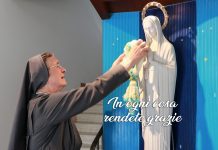
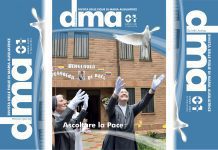
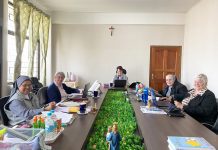



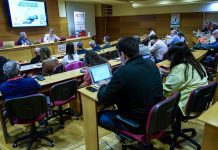
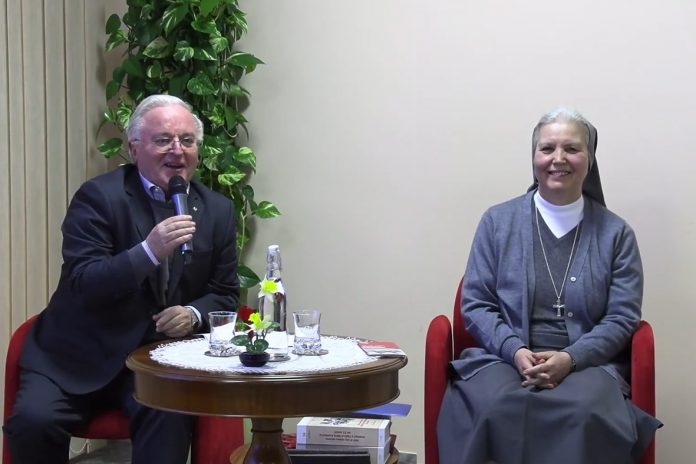










Buenos dias de Dios
Siempre me ha llamado la atension la congregación salesiana